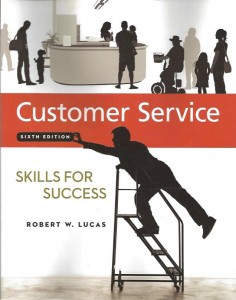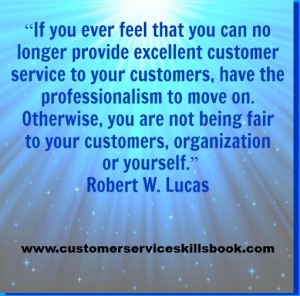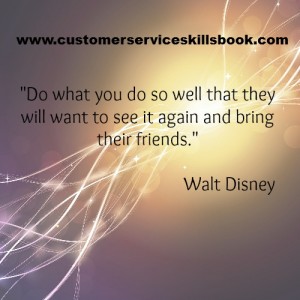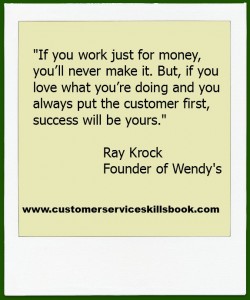Is Customer Service Week the Best Time to Show Customer Appreciation?
 Have you noticed how many articles and references are flying around stores and on the Internet regarding the importance of Customer Service Week? Service providers are wearing shirts and hats and articles abound on blogs and on various business sites stressing the importance of customer service. It all makes me wonder — “Is customer service week the best time to show customer appreciation?”
Have you noticed how many articles and references are flying around stores and on the Internet regarding the importance of Customer Service Week? Service providers are wearing shirts and hats and articles abound on blogs and on various business sites stressing the importance of customer service. It all makes me wonder — “Is customer service week the best time to show customer appreciation?”
My question is, why do organizations and customer service representatives wait for one time a year to thank the most important element of their business – their customers? Without their customers, they could all pack up and go home. This negligent approach to customer service reminds me of a joke I heard many years ago about an old married couple sitting with a marriage counselor. The wife was very distraught and crying her eyes out as she told the counselor that their problem was that after fifty years of marriage that her husband never told her that he loves her anymore. The startled husband was dumbfounded to hear that. He turned to her and asked, “Didn’t I tell you I loved you when we got married?” She responded timidly, “Yes.” He countered with, “Well if that changes, I’ll let you know!”
“Well if that changes, I’ll let you know!”
Similar to the story above, many organizations go out of their way to court potential customers by offering discounts, special incentives, and promises to outperform their competition. Once a customer comes aboard, the company is off creating new campaigns to entice more new customers, while typically forgetting about the current ones or demonstrating how much they mean to the organization.
It is no wonder that most organizations experience such high customer desertion or turnover rates (customer churn). Why would you go to an organization that does not appear to respect or value your business; Especially, when a qualified, and sometimes better, the competitor is only a mouse click or phone call away.
Managers need to continually remind themselves that they should not wait for a customer to reach out to inform the organization that they are taking their business elsewhere before going into recovery or retention mode. Often their special retention department customer service representatives have special authority to grant customer incentives, offer lower rates, and take other actions to encourage the customer to stay. At this point, depending on how irritated the customer is, it might be too late and the damage is irreversible.
Here are five simple things companies can do to reinforce customer satisfaction or brand loyalty and reduce customer attrition:
- Empower every customer service representative to offer customer incentives and help head off customer desertion.
- Create policies that are customer-centric and are continually updated to demonstrate that all customers are crucial to the organization.
- Continually look for ways to show that their organization really is the best value for the money and has its customers’ best interests in mind.
- Regularly provide customer service training that focuses on customer service skills, tips, ideas and strategies to address customer needs, wants and expectations.
- Treat every customer as unique and important and do not lump them into various demographic groups that receive generic approaches to service based on pre-conceived ideas of what they want or expect.
For hundreds of additional effective and proven customer service tips, techniques and strategies for creating and maintaining an excellent customer service environment that truly supports all customers, get copies of Customer Service Skills for Success, How to Be a Great Call Center Representative and Please Every Customer: Delivering Stellar Customer Service Across Cultures.




